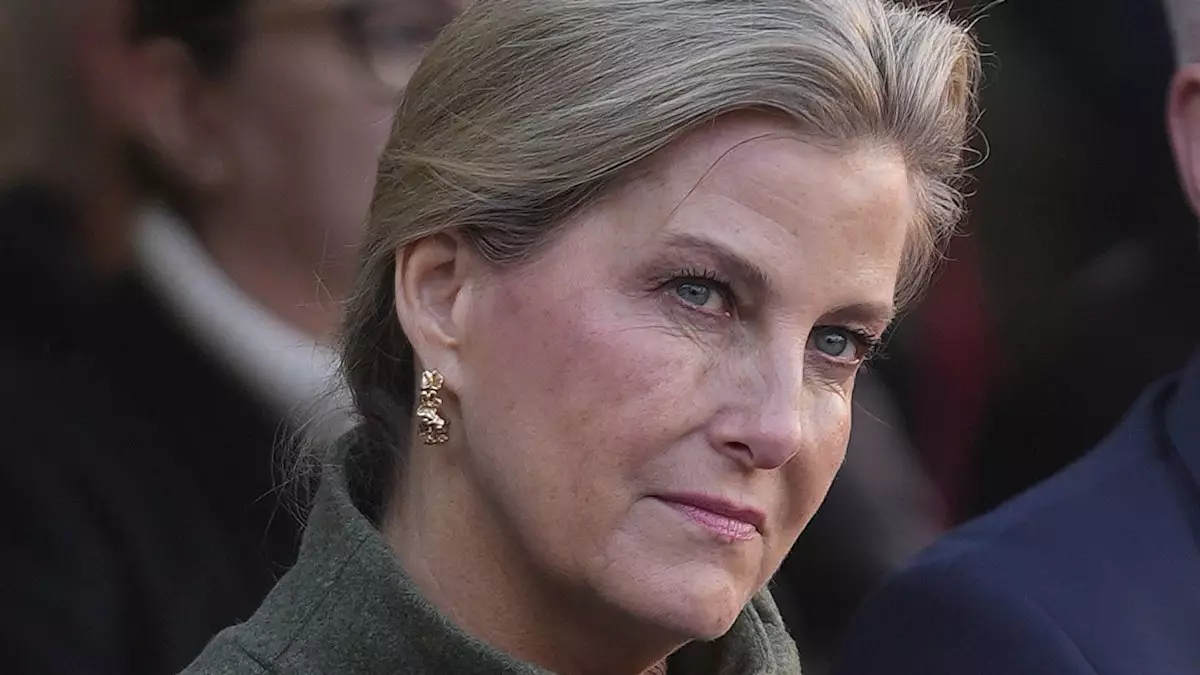The Duchess of Edinburgh, Sophie, continues to shine as a beacon of compassion and support for victims of violence, particularly in the realm of gender-based atrocities. Most recently, she was photographed embracing Yazidi genocide survivor Awaz Abdi at The Women Who Beat Isis photography exhibition held in London. This heartwarming moment underscores not only the compassion that the Duchess exudes but also her ongoing commitment to raising awareness about crucial humanitarian issues. Sophie’s act of kindness is more than just a notable visual; it serves as a reminder of the significant emotional and psychological toll that genocide and human rights abuses take on individuals and communities.
In this poignant encounter, the Duchess listened intently as Abdi detailed her traumatic personal story—the horrors she faced as a ten-year-old captured and enslaved by members of the Islamic State in Iraq. Hearing about Abdi’s harrowing experiences, including the painful separation from her family, is jarring and reminds us of the complex layers of suffering endured by survivors. Sophie’s genuine empathy and sorrow during this interaction are palpable, as she clearly understands the importance of acknowledging and amplifying these marginalized voices.
Sophie’s visit to the exhibition was not merely an act of ceremonial duty; it was a purposeful engagement aimed at challenging gender-based violence and shedding light on the aftermath of such tragedies. Her statements regarding the enduring trauma faced by victims emphasize the necessity of addressing the issue at multiple levels—personally, socially, and politically. The Duchess aptly noted that the lasting impact of violence not only devastates families but also fractures entire communities. Her commitment to addressing these chilling realities is a call to action for society at large.
Moreover, the Duchess articulates a crucial point on the lack of preventative measures against violence. Her observation that communities are torn apart by these acts emphasizes the need for global discourse and action to mitigate such issues. Violence, particularly that inflicted upon women and marginalized groups, often goes unchallenged in the public sphere, which underscores the urgent need for increased awareness and advocacy.
Social media reactions following the Duchess’s appearance at the exhibition highlight the deep appreciation for her efforts. Observers praised her as a figure who embodies love and freedom, reinforcing the notion that royals can influence positive change. One comment underscored her role in championing the causes of individuals whose suffering would otherwise remain hidden, illustrating the important function of public figures in amplifying marginalized voices.
Sophie is, indeed, playing an essential part in the ongoing discourse surrounding sexual violence and human rights abuses. By participating in initiatives like the UN’s Women, Peace and Security Agenda and the UK’s Preventing Sexual Violence in Conflict Initiative, she is demonstrating her dedication to creating a platform for dialogue about these pressing issues. Her commitment was further exemplified during her recent visit to Chad, where she witnessed firsthand the plight of refugees, showing once again that she does not shy away from confronting harsh realities.
The Duchess’s attendance at this exhibition aligns with the global campaign known as the 16 Days of Activism against Gender-Based Violence. This initiative serves as an annual reminder of the pervasive violence inflicted upon women and girls worldwide, while also promoting advocacy and mobilization for prevention strategies. The fact that Sophie chooses to engage in such a profound movement highlights her understanding of her role as a public figure in fighting pervasive societal injustices.
In a world where human rights abuses can sometimes feel distant, Sophie’s actions bring these narratives into proximity and inspire others to reflect on their own capacity for empathy and activism. Her journey becomes a call to action, inviting all of us to not turn a blind eye to the suffering of others, but rather to engage meaningfully with issues that demand our attention.
Ultimately, the Duchess of Edinburgh stands out not just as a royal figure, but as a compassionate advocate, dedicated to inspiring change and challenging systems of oppression. Her actions remind us that kindness and activism can radically alter lives, affirming the significant impact one individual’s compassion can have in illuminating the path toward a more just society.

